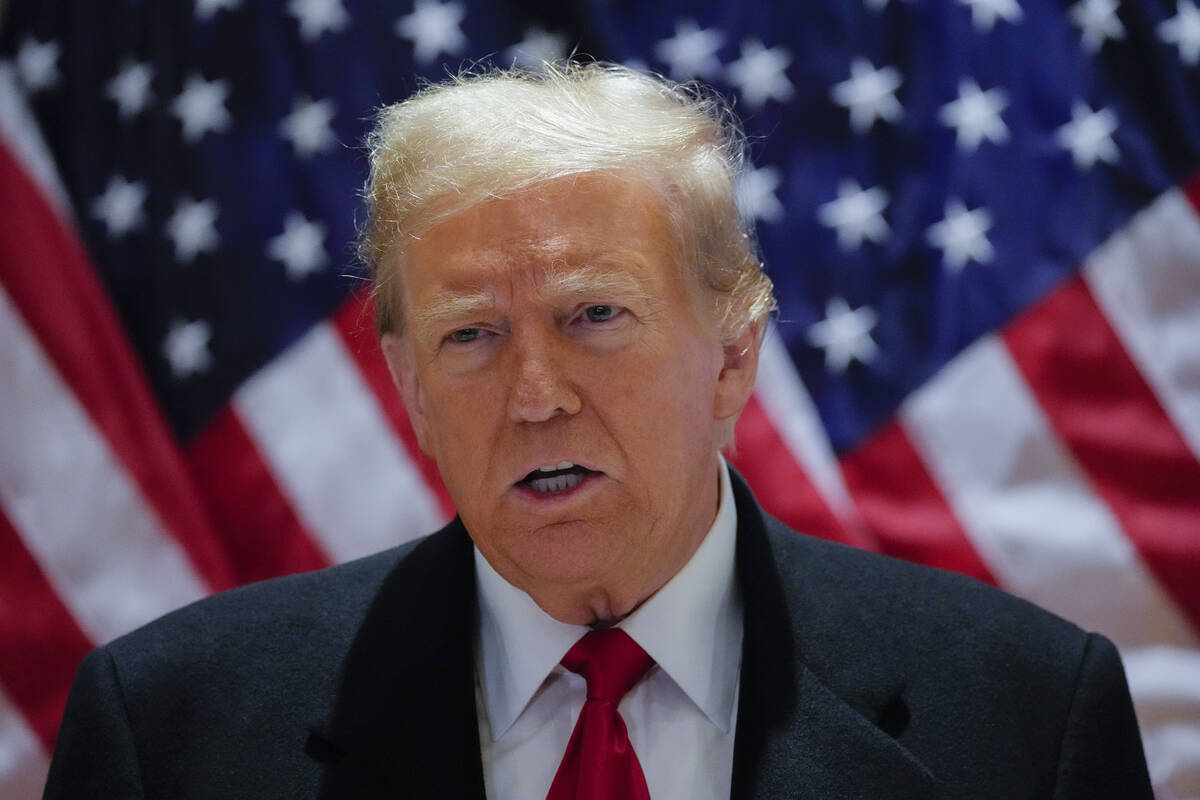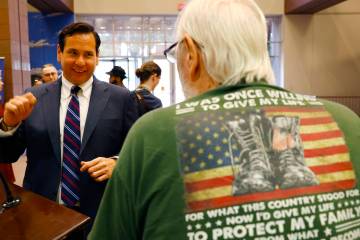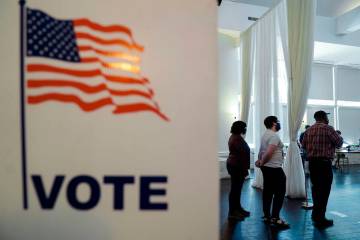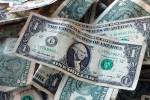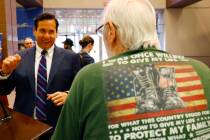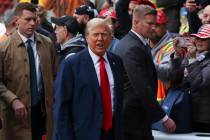Judge issues gag order in Donald Trump’s hush money case
NEW YORK — A New York judge issued a gag order Tuesday barring Donald Trump from making public statements about witnesses, prosecutors, court staff and jurors in his upcoming hush-money criminal trial.
Judge Juan M. Merchan cited the former president’s prior comments about him and others in the case, as well as a looming April 15 trial date, in granting a prosecution request for what it termed a “narrowly tailored” order barring Trump from making certain out-of-court statements.
“It is without question that the imminency of the risk of harm is now paramount,” Merchan wrote.
Prosecutors had asked for the gag order, citing what they called Trump’s “long history of making public and inflammatory remarks” about people involved in his legal cases.
The gag order does not bar comments about Merchan or Manhattan District Attorney Alvin Bragg, an elected Democrat. But it prohibits Trump from attacking key figures in the case, like his former lawyer-turned-nemesis Michael Cohen or porn star Stormy Daniels.
The prosecutors’ office declined to comment. Messages seeking comment were left for Trump’s campaign.
The gag order adds to restrictions put in place after Trump’s arraignment last April that prohibit him from using evidence in the case to attack witnesses.
After a hearing Monday where Merchan set the April 15 trial date, Trump tore into prosecutor Matthew Colangelo on social media, referring to the former Justice Department official as a “radical left from DOJ” sent to the D.A.’s office “to run the trial against Trump and that was done by Biden and his thugs.”
Merchan cited that comment in his ruling.
The Manhattan case centers on allegations that Trump falsified internal records kept by his company to hide the true nature of payments made to Cohen. The lawyer paid Daniels $130,000 as part of an effort during Trump’s 2016 presidential campaign to bury claims he’d had extramarital sexual encounters.
Trump is charged with 34 counts of falsifying business records, a felony punishable by up to four years in prison, though there is no guarantee that a conviction would result in jail time.
Trump, the Republican presidential front-runner, has lashed out about the case repeatedly on social media, warning of “potential death & destruction” before his indictment last year, posting a photo on social media of himself holding a baseball bat next to a picture of Bragg and complaining that Merchan is “a Trump-hating judge” with a family full of “Trump haters.”
Trump was already under a similar gag order in his Washington, D.C., election interference criminal case and was fined $15,000 for twice violating a gag order imposed in his New York civil fraud trial after he made a disparaging social media post about the judge’s chief law clerk. In January, a Manhattan federal judge threatened Trump with expulsion from court in a civil trial on writer E. Jean Carroll’s defamation claims against him after he was heard saying “it is a witch hunt” and “it really is a con job.”
“Self-regulation is not a viable alternative, as defendant’s recent history makes plain,” prosecutors wrote in court papers. Trump, they said, “has a longstanding and perhaps singular history” of using social media, campaign speeches and other public statements to “attack judges, jurors, lawyers, witnesses and other individuals involved in legal proceedings against him.”
The gag order mirrors portions of an order imposed on Trump in October in his separate Washington federal case, where he is charged with scheming to overturn the results of his 2020 election loss to Democratic rival Joe Biden.
A federal appeals court panel in December largely upheld Judge Tanya Chutkan’s gag order but narrowed it in an important way by freeing Trump to criticize special counsel Jack Smith, who brought the case. Manhattan prosecutors echoed that ruling by excluding Bragg from their proposed gag order.
Last May, Merchan issued what’s known as a protective order, warning Trump and his lawyers they risked being held in contempt if they disseminated evidence from the hush-money case to third parties, used it to attack witnesses or posted sensitive material to social media.
Merchan, noting Trump’s “special” status as a former president and current candidate, tried to make clear at the time that the protective order shouldn’t be construed as a gag order, saying, “It’s certainly not my intention to in any way impede Mr. Trump’s ability to campaign for the presidency of the United States.”



